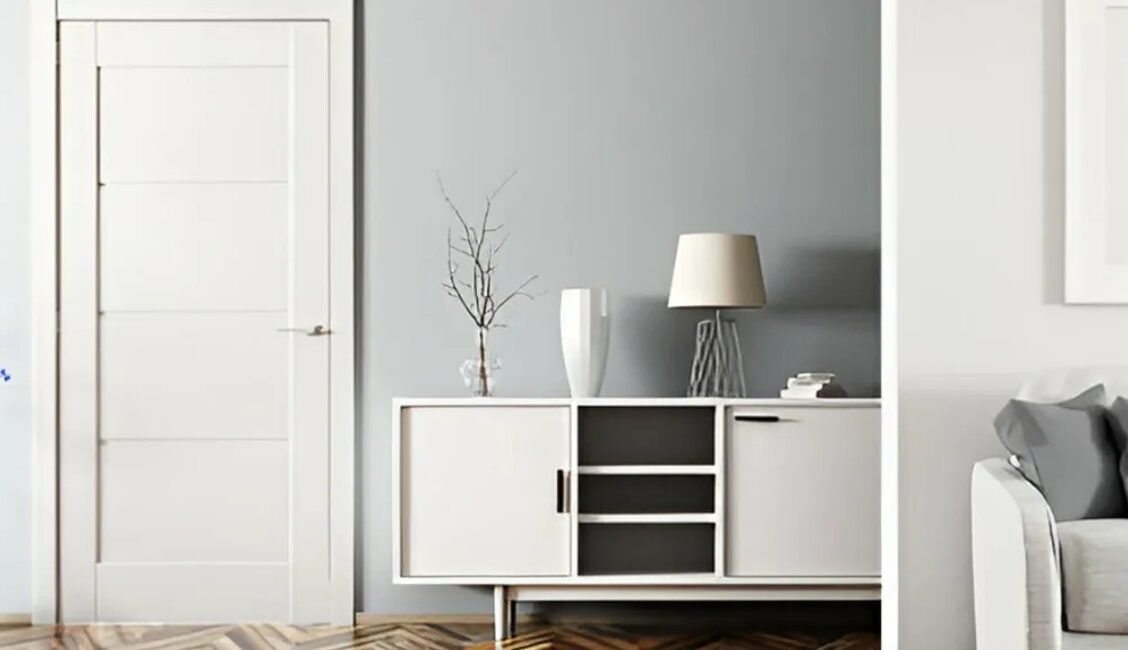
When selecting interior doors for your home, two popular choices are solid core interior doors and frosted glass doors. Each offers distinct advantages in terms of privacy, durability, aesthetics, and functionality. Understanding the differences between these two types can help you make an informed decision based on your needs.
In this comprehensive guide, we’ll explore:
-
What Are Solid Core Interior Doors?
-
Pros and Cons of Solid Core Doors
-
What Are Frosted Glass Doors?
-
Pros and Cons of Frosted Glass Doors
-
Comparing Solid Core and Frosted Glass Doors
-
Best Applications for Each Door Type
-
Factors to Consider Before Choosing
-
Maintenance and Longevity
Let’s dive in!
1. What Are Solid Core Interior Doors?
Solid core interior doors are constructed with a dense inner core, typically made of wood composite, particleboard, or fiberboard, and covered with a veneer or laminate finish. Unlike hollow-core doors, which are lightweight and less durable, solid core doors offer better sound insulation, sturdiness, and a premium feel.
Key Features:
-
Material: Dense wood composite or particleboard core
-
Weight: Heavier than hollow-core doors
-
Finish Options: Paintable veneers, wood grains, laminates
-
Common Uses: Bedrooms, home offices, bathrooms (for enhanced privacy)
2. Pros and Cons of Solid Core Interior Doors
✔ Advantages
✅ Superior Soundproofing – The dense core reduces noise transfer, making them ideal for bedrooms and offices.
✅ Enhanced Durability – More resistant to dents and damage compared to hollow-core doors.
✅ Better Insulation – Helps with temperature regulation and energy efficiency.
✅ Higher-End Look – Mimics the appearance of solid wood doors at a lower cost.
✅ Increased Privacy – No gaps or transparency, making them perfect for private spaces.
✖ Disadvantages
❌ Heavier Weight – Requires sturdy hinges and frames for installation.
❌ Higher Cost – More expensive than hollow-core doors (though cheaper than solid wood).
❌ Limited Design Variety – Mostly available in classic wood finishes rather than decorative styles.
3. What Are Frosted Glass Doors?
Frosted glass doors feature glass panels that have been treated (via sandblasting, acid etching, or film application) to create a semi-opaque, blurred effect. They allow light to pass through while maintaining privacy, making them a stylish choice for modern interiors.
Key Features:
-
Material: Tempered glass with frosted finish
-
Design Options: Full glass, partial glass inserts, geometric patterns
-
Common Uses: Bathrooms, closets, office partitions, modern living spaces
4. Pros and Cons of Frosted Glass Doors
✔ Advantages
✅ Natural Light Diffusion – Brightens up spaces without sacrificing privacy.
✅ Modern Aesthetic – Adds a sleek, contemporary look to interiors.
✅ Versatile Design Options – Available in various patterns and glass types (clear, textured, colored).
✅ Space-Enhancing Effect – Makes small rooms feel more open.
✅ Easy to Clean – Glass surfaces are simple to maintain.
✖ Disadvantages
❌ Less Soundproofing – Glass doesn’t block noise as effectively as solid core doors.
❌ Fragility Risk – Though tempered, glass can still crack or shatter upon impact.
❌ Limited Privacy in Bright Light – Frosting helps, but silhouettes may still be visible.
❌ Higher Cost – Custom glass doors can be more expensive than standard wood doors.
5. Solid Core vs. Frosted Glass Doors: Key Comparisons
| Feature | Solid Core Doors | Frosted Glass Doors |
|---|---|---|
| Privacy | Excellent | Moderate (depends on frosting level) |
| Soundproofing | High | Low to Moderate |
| Durability | Very durable | Less impact-resistant |
| Aesthetic | Traditional, classic | Modern, sleek |
| Light Transmission | Blocks light | Allows diffused light |
| Maintenance | Easy to repaint | Requires glass cleaning |
| Cost | Mid-range | Higher (custom designs) |
6. Best Applications for Each Door Type
🔹 Best Uses for Solid Core Doors
-
Bedrooms (for noise reduction and privacy)
-
Home Offices (to minimize distractions)
-
Bathrooms (if full privacy is needed)
-
Entryways (for a sturdy, high-end feel)
🔹 Best Uses for Frosted Glass Doors
-
Modern Bathrooms (allows light while maintaining privacy)
-
Closet Doors (adds elegance without blocking light)
-
Office Partitions (creates an open yet defined space)
-
Living Room Dividers (enhances natural light flow)
7. Factors to Consider Before Choosing
🔎 Privacy Needs
-
If maximum privacy is essential (e.g., bedrooms), solid core is better.
-
For semi-private spaces (e.g., bathrooms with diffused light), frosted glass works well.
🔎 Noise Control
-
Solid core doors are best for soundproofing.
-
Glass doors offer minimal noise insulation.
🔎 Interior Style
-
Traditional homes benefit from solid wood-like doors.
-
Contemporary spaces look great with frosted glass designs.
🔎 Budget
-
Solid core doors are mid-range in cost.
-
Frosted glass can be pricier, especially with customizations.
8. Maintenance and Longevity
🛠 Solid Core Doors
-
Maintenance: Easy to repaint or refinish.
-
Lifespan: Long-lasting (10+ years with proper care).
🛠 Frosted Glass Doors
-
Maintenance: Requires regular cleaning to avoid smudges.
-
Lifespan: Durable but susceptible to cracks if mishandled.
Final Verdict: Which One Should You Choose?
-
Choose Solid Core Doors If: You prioritize privacy, durability, and noise reduction in private areas like bedrooms and offices.
-
Choose Frosted Glass Doors If: You want a modern, light-filled aesthetic for bathrooms, closets, or office partitions.
Both options have unique benefits, so your decision should align with your home’s functionality and design goals.
Need Help Deciding?
Consult with an interior designer or door specialist to find the best fit for your space. Whether you prefer the solid, sturdy feel of core doors or the elegant transparency of frosted glass, the right choice will enhance your home’s comfort and style.


